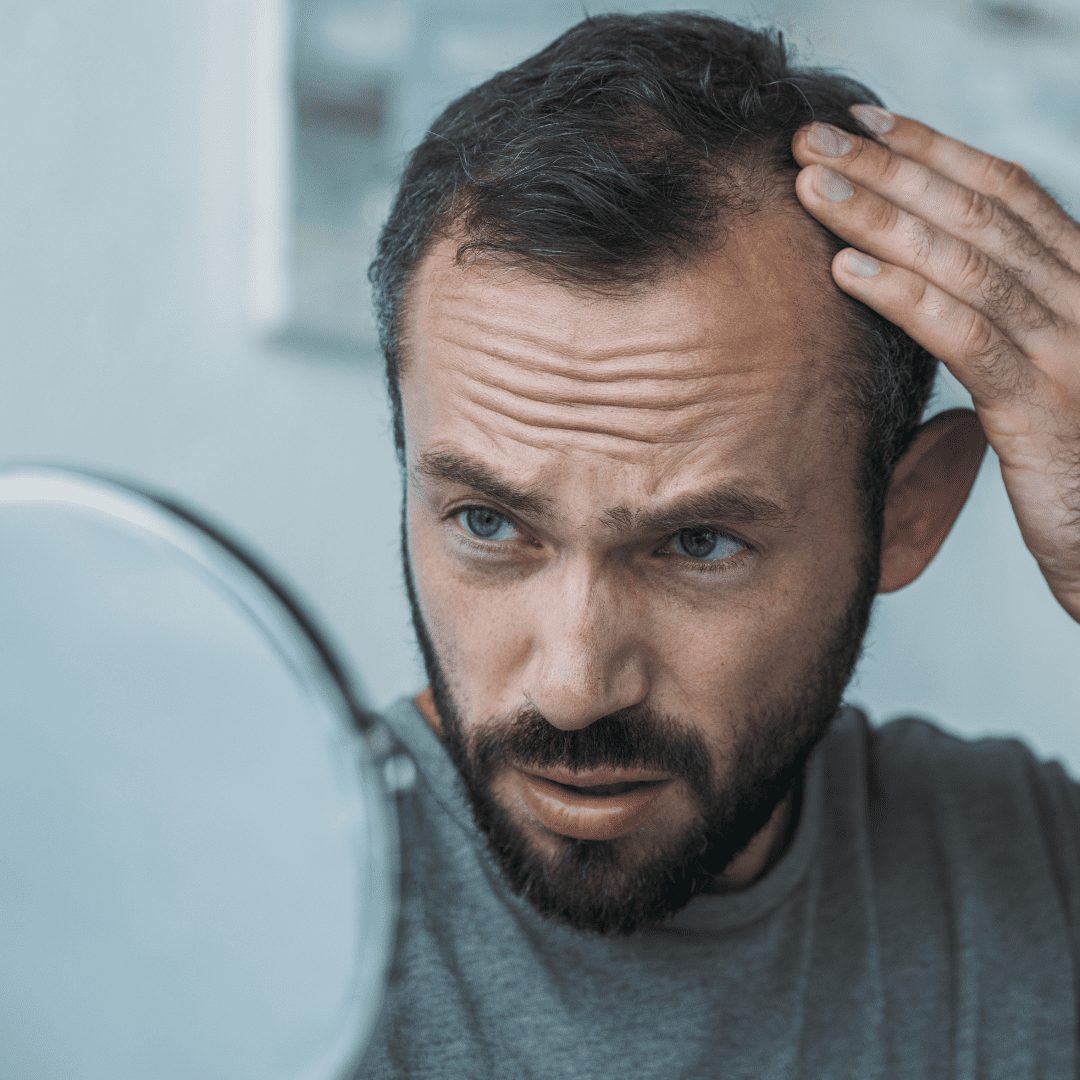Five ways to make your hair grow faster after a hair transplant
MHR Clinic Harrogate’s Dean Watson looks at how to make hair grow faster after a hair transplant and finds that diet, stress, sleep, styling products and head massages all influence hair growth.
The weeks and months after a hair transplant can be a frustrating period for many who undergo a FUE procedure.
The anticipation of regaining a thick head of hair often gives way to impatience as clients monitor their new hair growth, in some cases on a daily basis.
It is possible to become a little disheartened during this challenging period.
Many of those clients look for ways to accelerate their hair growth and ask us, ‘what will make my hair grow faster?’

Some are then surprised to hear us give them a few suggestions to speed up hair growth after a hair transplant.
Once hair has passed through the dormancy phase, following the transplant of follicles from one part of the head to another, it is possible to keep it growing at an optimum speed by adopting a few lifestyle commitments.
A strict adherence to a medical hair restoration programme of prescription medication, topical applications, cold laser therapy and nutrient supplements is also necessary.
However, we endorse the following practices to help hair grow as fast as possible after a hair transplant.
Many of our clients find that if they stick to the following advice the rate at which their hair grows picks up.
This can lead to some regaining a thick head of hair weeks in advance of others who don’t take our suggestions on board.





Eat a balanced diet to help hair to grow faster
In addition to maintaining healthy eating habits, MHR Clinic advises clients to eat foods that encourage the production of keratin and collagen in the body.
This means loading dinner plates with rich sources of protein such as chicken, turkey, eggs and broccoli.
Eating a few specific staple ingredients over the period after a hair transplant can also help to speed growth.
Red meat provides iron. Cauliflower provides a rich and natural source of biotin. Snacking on Brazil nuts between meals provides selenium.
Cold-water fatty fish like salmon, mackerel and tuna provide omega-3 fats, which recent studies have shown stimulate hair growth and contribute to thicker hair.
Creating a consistent diet around these ingredients will help hair to grow at its fastest after a hair transplant.
Wait to use styling products after a hair transplant
This may be one of the harder disciplines to adopt after a hair transplant.
Following a FUE procedure, having a new head of hair brings with it the added excitement of being able to style and shape it in new and different ways.
But to help hair grow faster after a hair transplant the new hairstyles have to go on hold.
Gels, waxes, hairsprays, mousses and dry shampoos used to style hair cause build-up on the scalp.
They clog and pollute hair follicles, causing poor follicle health and slower hair growth.
A better practice is to wash hair regularly with a neutral and natural shampoo that is free from aggressive chemicals like parabens, sodium laureth sulfate, sodium lauryl sulfate and sodium chloride.
MHR Clinic advises using its own tea tree oil shampoo which is free from these damaging constituents and ideal for cleansing transplanted follicles.
Manage your stress as your transplanted hair grows
Mental and emotional pressure takes its toll on the body in many ways, including alterations to the hair growth cycle.
The human body understands that hair isn’t an essential organ so when placed under stress it prioritises the supply of nutrients and energy to the heart, lungs, brain, kidneys and liver.
One of the first things to suffer is hair, which is pushed into a resting phase until the stress has passed.
As a result hair grows more slowly and in some cases thins while the body is experiencing stress.
To help it manage stress, MHR Clinic suggests practicing yoga poses, some of which also support good hair growth, as part of a daily exercise routine.
The resulting calm and collected disposition can go a long way to optimising hair growth after a hair transplant.
Have a regular head massage to help
While a head massage is a direct route to a mellow mood (see above), the physical effect of having a good scalp rub also benefits hair growth.
Having a scalp massage helps to stimulate blood vessels and micro capillaries in the scalp, allowing greater blood supply and oxygen to reach hair follicles.
Head massages are also thought to gently stretch the cells in hair follicles, stimulating them to produce thicker hair.
It is important to allow enough time for newly transplanted hair follicles to attach themselves to a new blood supply in the scalp before having a scalp massage.
However, from approximately one month after a FUE procedure a twice-daily traditional scalp massage serves to invigorate follicles so they produce an optimum amount of hair.
Additionally, using a handheld rubber scalp massager to apply either lavender, sandalwood or peppermint essential oil mixed with a melted coconut carrier during a head massage is also believed to benefit hair growth.
Get good sleep on silk pillowcases
Deep sleep is essential for the health and growth of hair after a FUE procedure. It is key to the body’s regenerative processes.
As we sleep our cells are repaired and regenerated.
Good sleep enables the body to keep follicles and the scalp in their best condition so hair growth is quick and strong.
Sleep also allows our body to produce an optimum amount of human growth hormones, required for fast growing hair.
In addition, it helps with the production of melatonin which is believed to positively affect hair growth.
A lack of sleep not only reduces the time our body spends repairing and regenerating cells, and producing hormones and enzymes, it places stress on the body and weakens the immune system.
These things compromise the body’s ability to absorb nutrients needed to support healthy, fast hair growth.
Sleeping on silk pillowcases also reduces abrasion to follicles as it helps hair to retain moisture and has a softer surface than traditional textile pillow cases.
A lack of sleep not only reduces the time our body spends repairing and regenerating cells, and producing hormones and enzymes, it places stress on the body and weakens the immune system. These things compromise the body’s ability to absorb nutrients needed to support healthy, fast hair growth. Sleeping on silk pillowcases also reduces abrasion to follicles as it helps hair to retain moisture and has a softer surface than traditional textile pillowcases.
If you want to understand more about how a hair transplant can reverse your hair loss, please talk to MHR Clinic about the options available to you. Telephone 01565 745 344 or through this contact page.
